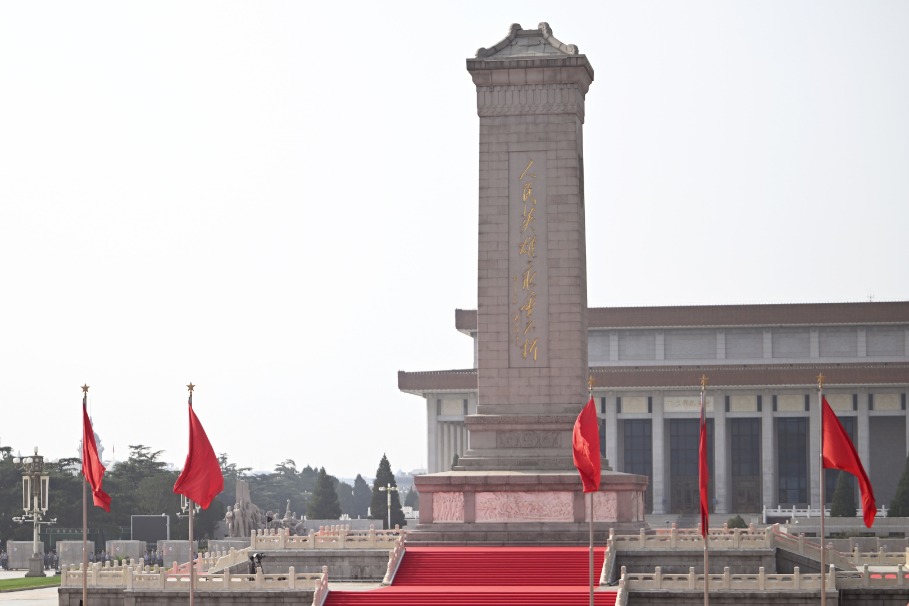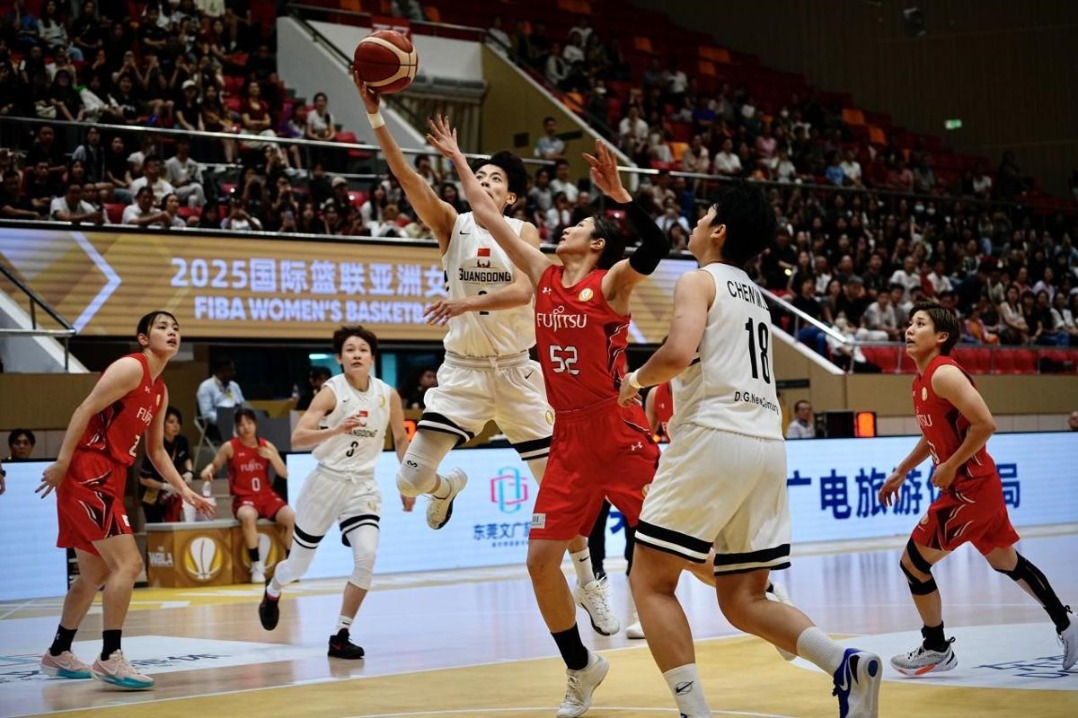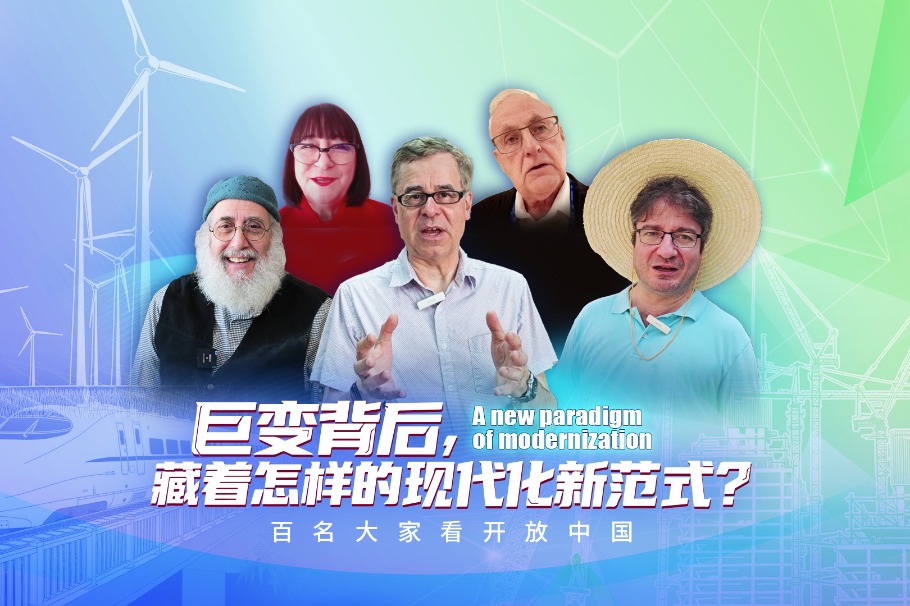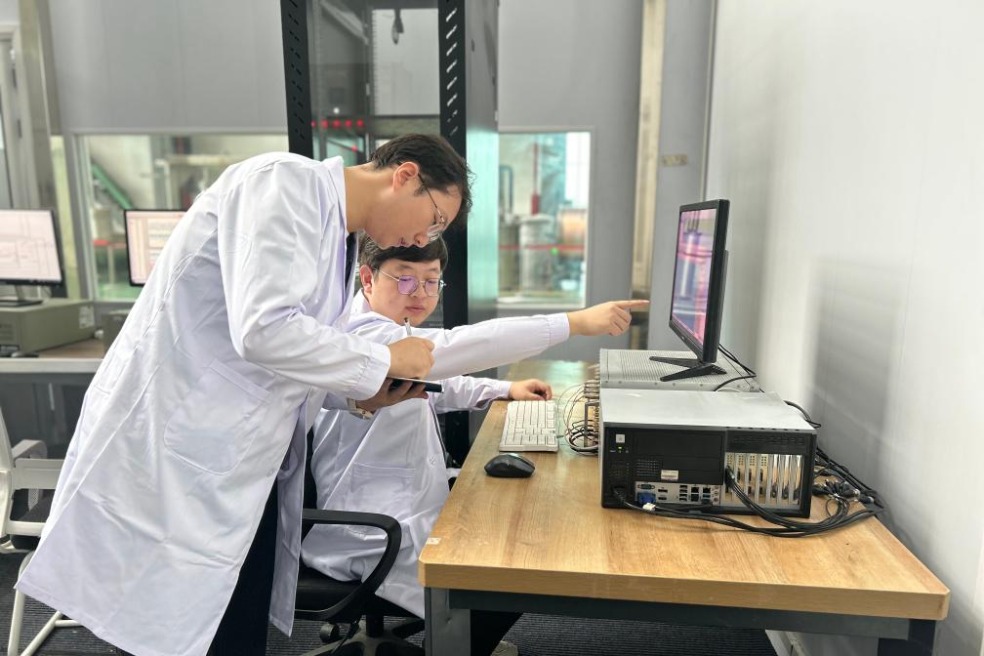The art of songwriting
A new album celebrates the late Ding Shande, a hugely influential and prolific Chinese composer, pianist and musical educator, Chen Nan reports.

Klaus Heymann can still recall the day when he visited late Chinese composer and pianist Ding Shande (1911-95) in Shanghai in the 1980s.
"I don't know which year it was since it was a very long time ago. Back then, Shanghai was quite different from today. There were less cars, and it was very dark outside during the night," says Heymann. "I remember that there were two boys playing in the big living room of Ding's nice, old house."
That's how Heymann's friendship with Ding and his family started.
The German-born entrepreneur, 85, is credited with founding Naxos in 1987, today a leading classical record label headquartered in Hong Kong.
Heymann, who doesn't play instruments and can't read music, launched the record label to distribute recordings made by his wife, Japanese violinist Takako Nishizaki, who, since settling in Hong Kong in 1974, has become well-known for her performances and recordings of Chinese violin pieces, especially the Butterfly Lovers violin concerto.
Four decades later, Heymann still keeps in touch with Ding's family by working with the "two boys"-Ding's grandsons: Yu Long, a veteran conductor, and Yu He, founder and CEO of Kuke Music, China's first online platform dedicated to promoting classical music.
On Nov 12, the 110th birth anniversary of Ding, an album, titled Essential Art Songs of Ding Shande, was released globally by Naxos.
Featuring 14 art songs and five songs from Song Cycle Dianxi Poem Collection, all composed by Ding, the album is performed by Chinese tenor Zhang Jianyi, soprano Huang Ying and pianist Wei Fugen.
"All of the art songs have the distinctive sound of Chinese folk music, which Ding combined with Western classical music. People around the world will be able to enjoy his music,"Heymann says.
When Chinese composers were not as widely known worldwide as they are today, Naxos had recorded and published musical works by Chinese composers, including Bright Sheng, Tan Dun and Chen Qigang, according to Heymann.
Ding's music pieces are also included in Naxos' large catalog, such as his symphonic poem Spring and the piano suite for children Happy Festival, both performed by Ding's daughter, pianist Ding Jiannuo, along with his Long March Symphony, performed by the Slovak Radio Symphony Orchestra under the baton of conductor Yu Long.
"My grandfather composed many musical works. My favorites are his art songs. He loved Chinese folk songs and he wrote many pieces that were inspired by them," says Yu Long. "I was very lucky to grow up with him and receive musical training from him, which had a profound lifelong influence."
Yu Long, who was classically trained in Germany, led the Shanghai Symphony Orchestra in a performance of art songs by Ding and Gustav Mahler at a concert held on Jan 15 in Shanghai. On Oct 14, a concert featuring the works of both composers was staged in Beijing during the Beijing Music Festival, which was founded by Yu Long in 1998.
"I was a big fan of Mahler when I studied in Germany. My grandfather was born in the year that Mahler died. I want to pay tribute to them by performing their works," says Yu Long.
Ding's other grandson, Yu He, is the producer of the new album.
"This is the first album that I produced. As his grandson, I wanted to express my love for him. It's a very meaningful album for my whole family, especially my mother, who is a big fan of art songs," says Yu He, whose company, launched 15 years ago, has been working with Naxos since the beginning. In 2015, Kuke and Naxos together established Naxos China, which is dedicated to promoting Chinese classical musicians.
Unlike his elder brother Yu Long, who spent his childhood in Shanghai, Yu He moved to Beijing at age 5 and returned to Shanghai at 10.
"When I moved back to Shanghai, my grandfather had already retired from the Shanghai Conservatory of Music. He loved writing music and playing with his cat," recalls Yu He. "He was a very kind and caring grandfather. He let us learn to play the piano but never forced us to practice."
Ding, born in Kunshan, Jiangsu province, learned to play traditional Chinese musical instruments, such as pipa, erhu and the bamboo flute, when he was a child. In 1928, alongside pipa, he began to learn to play the piano at a music school in Shanghai.
In 1934, Ding recorded Chinese composer He Luting's piano solo works: Buffalo Boy's Little Flute and Lullaby, which made Ding the first Chinese pianist to record an album. The next year, Ding held his piano recital in Shanghai, Tianjin and Beijing, making him the first Chinese pianist to hold solo recitals.
In 1947, he entered Conservatoire de Paris, studying composition. After returning to China in 1949, he worked as deputy director of the Shanghai Conservatory of Music and as the dean of its composition department.
Many celebrated musicians, such as pianist Zhou Guangren, composers Chen Gang and Wang Xilin, were his students.
A prolific composer, Ding wrote for symphony orchestras and choirs, as well as producing chamber music and film scores. Some of his best-known works include the first symphonic suite by a Chinese composer, Long March Symphony, portraying the Chinese Red Army's historic military retreat, the symphonic suite New China, marking the founding of the People's Republic of China in 1949, and the piano suite Happy Festival.
He died in Shanghai.
"His art songs are still widely used by music schools to train vocalists and are also performed at concerts," says tenor Zhang, 67, who began to study at the Shanghai Conservatory of Music in 1981 and went to study at the Juilliard School in New York in 1986.
One of Zhang's favorite songs composed by Ding is titled My Love Gives Me a Sunflower, which, composed in 1962, is included in the new album.
"The lyrics are simple, beautiful and romantic. The song is full of color and emotion," says Zhang.
"Art songs are only arranged for a singer and an instrument, like the piano. In the 1950s, art songs were very popular in China," says pianist Wei, a professor at the Shanghai Conservatory of Music. "Now, few Chinese composers write art songs and some don't even know what art songs are. It's valuable to release an album highlighting Ding's art songs-an integral part of the Chinese music repertoire."


Today's Top News
- Xi pays tribute to national heroes on Martyrs' Day
- China taking measures to end cervical cancer among women and girls
- Culture tourism fuels global exchange
- Lawmakers from US rebuked for distorting UN stance
- PLA Navy ships Qi Jiguang, Yimengshan enter Hong Kong waters
- China, DPRK promise to enhance ties






























